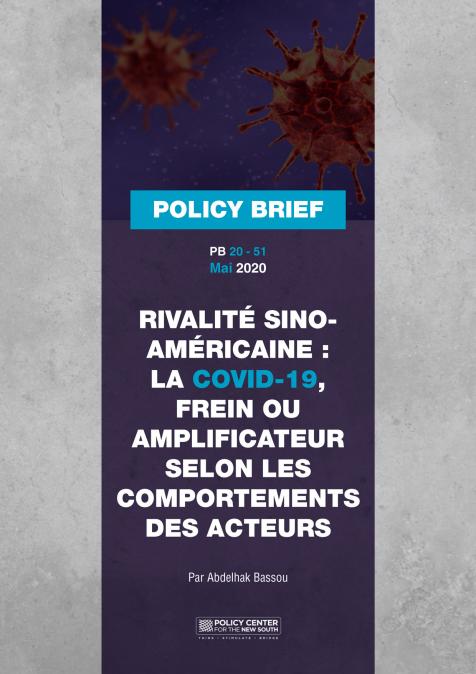Publications /
Policy Brief
Policy Brief
Rivalité sino-américaine : La Covid-19, frein ou amplificateur selon les comportements des acteurs
May 27, 2020
Les tensions dans les relations entre les Etats-Unis et la Chine sont un sujet de préoccupation pour le monde. En dépit des quelques ouvertures éphémères, qui donnent parfois espoir à la détente, la tendance de ces derniers temps est plutôt vers l’escalade. Il ne se passe pas un mois, voire une semaine sans qu’actions, déclarations ou positions de l’un des deux pays contre l’autre ne fasse la Une de l’actualité. Des incidents les plus dangereux en Mer de Chine méridionale, aux mesures douanières et tarifaires, en passant par des arrestations d’espions et les accusations d’ingérence, les hostilités vont bon train et sont réciproques et continus.




